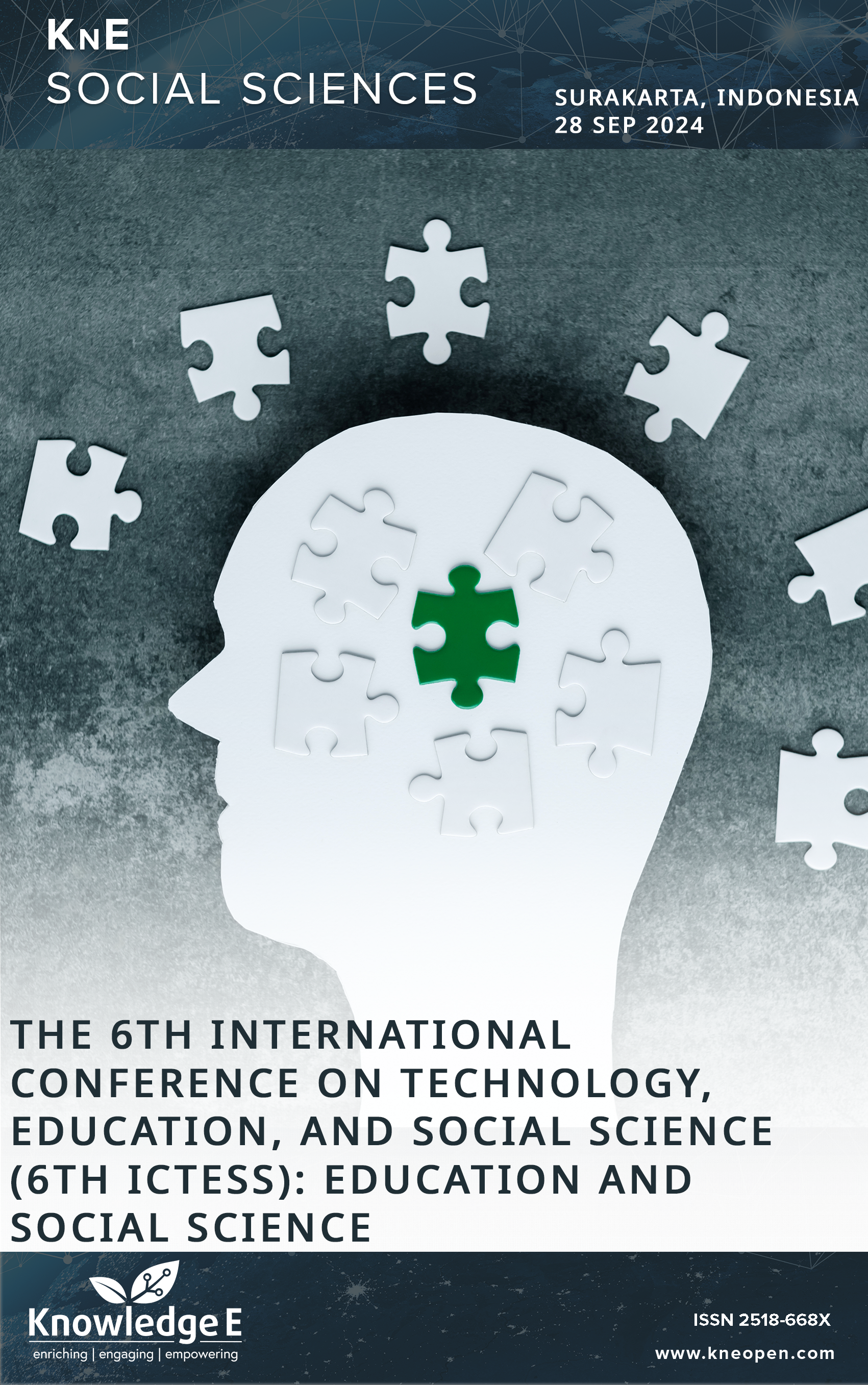Evaluating Readiness Level of Education Personnel in Implementing Online Learning During the COVID-19 Pandemic at Universitas Gadjah Mada
DOI:
https://doi.org/10.18502/kss.v10i17.19335Keywords:
innovation, online learning, pandemic, perception, supporting facilitiesAbstract
This study was conducted at Universitas Gadjah Mada (UGM) and involved administrative staff who worked and participated in online learning activities during the COVID-19 pandemic. A total of 200 respondents from various faculties and schools completed a questionnaire via Google Forms, providing insights into their competencies, perceptions, innovation, and the availability of supporting facilities for online learning. The findings indicate that UGM’s administrative staff possessed adequate personal competencies to support online learning, held positive perceptions of their roles, demonstrated the ability to innovate in adapting to online systems, and were supported by sufficient institutional facilities. Data analysis revealed that supporting facilities significantly influenced readiness for online learning, contributing 63.1% to overall preparedness.
References
[1] Saragih D. Learn From Home Policy Implementation in Primary-Level Student During Academic Year 2020-2021 in Medan. Indonesian Journal of Multidisciplinary Science. 2023 Apr;2(7):2738–54.
[2] Tathahira S. Indonesian Journal of Curriculum and Educational Technology Studies The Implementation of Online Learning During Covid-19 Pandemic: English Teachers’ Perceptions at Senior High Schools in South Aceh. IJCETS [Internet]. 2020;8(2):113– 22.
[3] Abdullah MS, Toycan M. Analysis of the Factors for the Successful E-Learning Services Adoption from Education Providers’ and Students’ Perspectives: A case study of Private Universities in Northern Iraq. Eurasia J Math Sci Technol Educ. 2017 Dec;14(3): https://doi.org/10.12973/ejmste/81554.
[4] Saintika Y, Astiti S, Kusuma DJ, Muhammad AW. Analysis of E-learning readiness level of public and private universities in central Java, Indonesia. Register. Jurnal Ilmiah Teknologi Sistem Informasi. 2021;7(1):15–30.
[5] Clark RC, Mayer RE, editors. e-Learning and the Science of Instruction: Proven Guidelines for Consumers and Designers of Multimedia Learning [Internet]. Wiley; 2016. https://doi.org/10.1002/9781119239086.
[6] Sasabila Putri F, Zega D. 2023) Implementation of Information and Communication Technology in Management Learning System During the Covid 19 Pandemic [ITEE]. International Transactions on Education Technology. 2023;9(2):151–6.
[7] Akbar BM. Analysis of Readiness Factors for E-learning Implementation in Agricultural Universities (Case Study at Stiper Institute of Agriculture Yogyakarta). In Yogyakarta: Seminar Nasional Aplikasi Teknologi Informasi (SNATi); 2016. p. 38– 43.
[8] Saputra R, Rosita S, Chairunnisa F. The Effect of Competence on Student Readiness in The World of Work with Confidence as The Intervening Variable. Management Research and Behavior Journal. 2023;3(1):16–23.
[9] Kong SC, Tina Ma Y. Principals’ Perceptions of Online Teaching and Learning in School After the Outbreak of the Pandemic. Int J Distance Educ Technol. 2022 Oct;20(1):1–18.
[10] Kamis A, Saibon RA, Yunus FA, Rahim MB. The SmartPLS Analyzes Approach in Validity and Reliability of Graduate Marketability Instrument [Internet]. Soc Psychol Educ. 2020;57(8):987–1001.
[11] Haji-Othman Y, Yusuff MS. Assessing Reliability and Validity of Attitude Construct Using Partial Least Squares Structural Equation Modeling (PLS-SEM). Int J Acad Res Bus Soc Sci. 2022 May;12(5): https://doi.org/10.6007/IJARBSS/v12-i5/13289.
[12] Mohamed Z, Ubaidullah N, Yusof S. An Evaluation of Structural Model for Independent Learning Through Connectivism Theory and Web 2.0 Towards Studentsr Achievement. In: Proceedings of the International Conference on Applied Science and Engineering (ICASE 2018). Paris, France: Atlantis Press; 2018. https://doi.org/10.2991/icase-18.2018.1.
[13] Diteeyont W, Heng-Yu K. Competency levels and influential factors of college students’ mobile learning readiness in Thailand. Smart Learning Environments. 2023 Dec;10(1):44.
Published
How to Cite
Issue
Section
License
Copyright (c) 2025 Wahyu Supartono, Nurzani

This work is licensed under a Creative Commons Attribution 4.0 International License.

